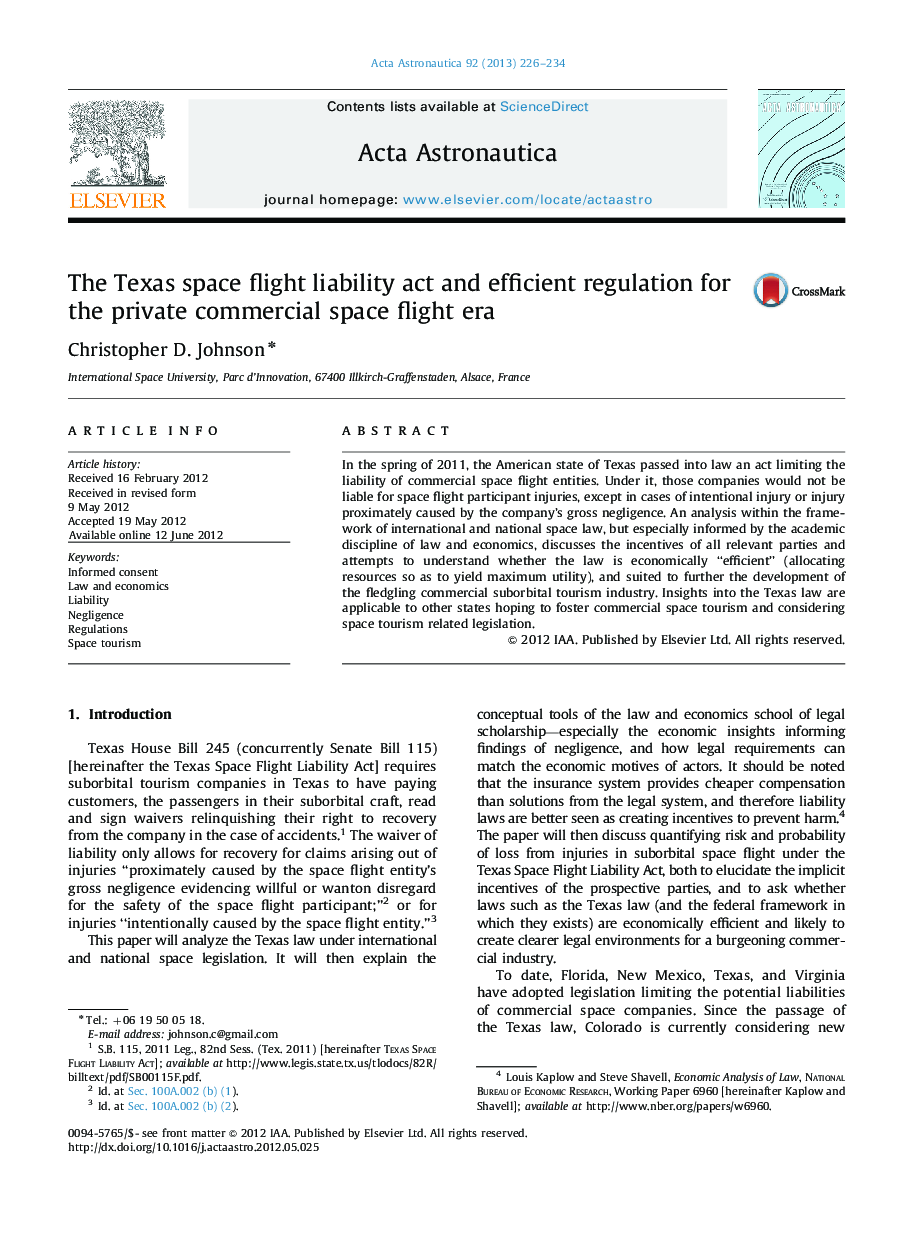| Article ID | Journal | Published Year | Pages | File Type |
|---|---|---|---|---|
| 1714847 | Acta Astronautica | 2013 | 9 Pages |
In the spring of 2011, the American state of Texas passed into law an act limiting the liability of commercial space flight entities. Under it, those companies would not be liable for space flight participant injuries, except in cases of intentional injury or injury proximately caused by the company's gross negligence. An analysis within the framework of international and national space law, but especially informed by the academic discipline of law and economics, discusses the incentives of all relevant parties and attempts to understand whether the law is economically “efficient” (allocating resources so as to yield maximum utility), and suited to further the development of the fledgling commercial suborbital tourism industry. Insights into the Texas law are applicable to other states hoping to foster commercial space tourism and considering space tourism related legislation.
► Space legislation is being promulgated by states. ► These laws allow passengers to assume the risk of injury, except in certain cases. ► Law and Economics makes explicit the implicit incentives of actors. ► Legal negligence can be made to track the economic incentives of actors. ► Clear and efficient legislation will foster emerging space industries.
